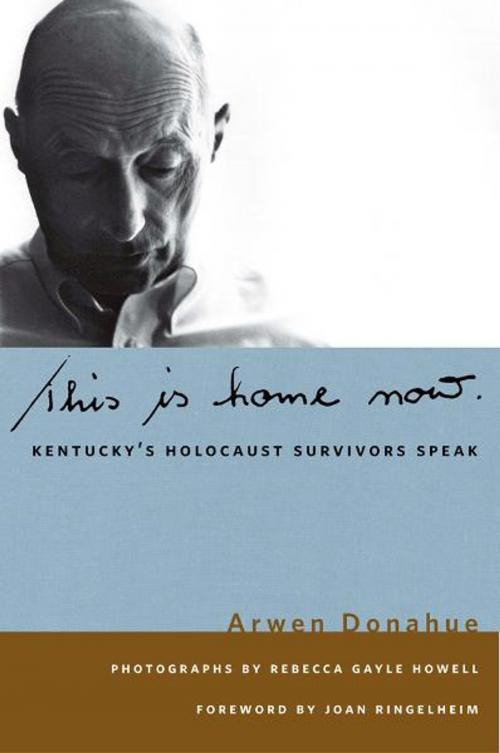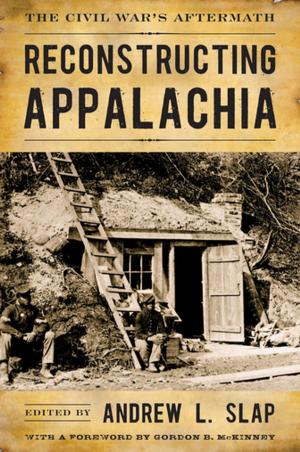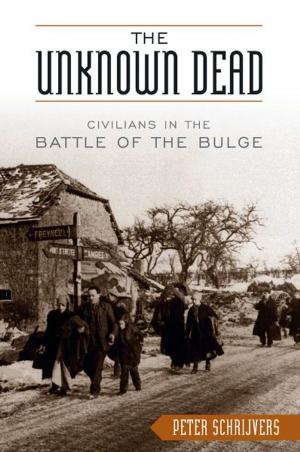This is Home Now
Kentucky's Holocaust Survivors Speak
Nonfiction, History, Jewish, Holocaust, Americas, United States| Author: | Arwen Donahue, Douglas A. Boyd, James C. Klotter, Terry L. Birdwhistell | ISBN: | 9780813139098 |
| Publisher: | The University Press of Kentucky | Publication: | September 1, 2009 |
| Imprint: | The University Press of Kentucky | Language: | English |
| Author: | Arwen Donahue, Douglas A. Boyd, James C. Klotter, Terry L. Birdwhistell |
| ISBN: | 9780813139098 |
| Publisher: | The University Press of Kentucky |
| Publication: | September 1, 2009 |
| Imprint: | The University Press of Kentucky |
| Language: | English |
The term "Holocaust survivors" is often associated with Jewish communities in New York City or along Florida's Gold Coast. Traditionally, tales of America's Holocaust survivors, in both individual and cultural histories, have focused on places where people fleeing from Nazi atrocities congregated in large numbers for comfort and community following World War II. Yet not all Jewish refugees chose to settle in heavily populated areas of the United States. In This Is Home Now: Kentucky's Holocaust Survivors Speak, oral historian Arwen Donahue and photographer Rebecca Gayle Howell focus on overlooked stories that unfold in the aftermath of the Holocaust. They present the accounts of Jewish survivors who resettled not in major metropolitan areas but in southern, often rural, communities. Many of the survivors in these smaller communities did not even seek out the few fellow Jewish residents already there. Donahue transcribes the accounts as she heard them, keeping true to the voices of those she interviewed. One of the survivors who shares her tale, Sylvia Green, describes the pain and desolation of her experiences in the Nazi death camps with a voice that reveals both her German-Polish heritage and her subsequent small-town life in Winchester, Kentucky. The Hungarian-born Paul Schlisser has an equally complex voice, a mix of phrases learned in the U.S. Army in Vietnam and regional speech patterns acquired in his adopted home near Fort Knox. Donahue's collection of voices, accompanied by Howell's poignant photographs, identifies each storyteller as an American -- and as a Kentuckian. Like many others of diverse backgrounds before them, Holocaust survivors joined the "melting pot" as a haven from the suffering in their native lands, but they eventually came to regard America as home. Although they speak of atrocities, most often experienced when they were children and unable to fully comprehend the situation, they also emphasize the comfort of acceptance -- not just by Jewish communities but also by a state that has long equated "religion" with Christianity alone. Kentucky is not known for its cultural and religious diversity, yet these stories reveal one of the many ways that the state has become home to a wide spectrum of immigrants -- people who once were strangers but now are its own.
The term "Holocaust survivors" is often associated with Jewish communities in New York City or along Florida's Gold Coast. Traditionally, tales of America's Holocaust survivors, in both individual and cultural histories, have focused on places where people fleeing from Nazi atrocities congregated in large numbers for comfort and community following World War II. Yet not all Jewish refugees chose to settle in heavily populated areas of the United States. In This Is Home Now: Kentucky's Holocaust Survivors Speak, oral historian Arwen Donahue and photographer Rebecca Gayle Howell focus on overlooked stories that unfold in the aftermath of the Holocaust. They present the accounts of Jewish survivors who resettled not in major metropolitan areas but in southern, often rural, communities. Many of the survivors in these smaller communities did not even seek out the few fellow Jewish residents already there. Donahue transcribes the accounts as she heard them, keeping true to the voices of those she interviewed. One of the survivors who shares her tale, Sylvia Green, describes the pain and desolation of her experiences in the Nazi death camps with a voice that reveals both her German-Polish heritage and her subsequent small-town life in Winchester, Kentucky. The Hungarian-born Paul Schlisser has an equally complex voice, a mix of phrases learned in the U.S. Army in Vietnam and regional speech patterns acquired in his adopted home near Fort Knox. Donahue's collection of voices, accompanied by Howell's poignant photographs, identifies each storyteller as an American -- and as a Kentuckian. Like many others of diverse backgrounds before them, Holocaust survivors joined the "melting pot" as a haven from the suffering in their native lands, but they eventually came to regard America as home. Although they speak of atrocities, most often experienced when they were children and unable to fully comprehend the situation, they also emphasize the comfort of acceptance -- not just by Jewish communities but also by a state that has long equated "religion" with Christianity alone. Kentucky is not known for its cultural and religious diversity, yet these stories reveal one of the many ways that the state has become home to a wide spectrum of immigrants -- people who once were strangers but now are its own.















